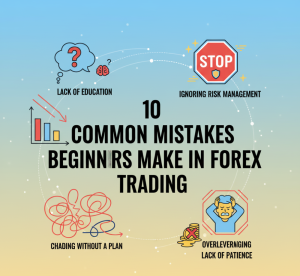
Forex trading — the global exchange of currencies — offers huge opportunities for profit, flexibility, and financial independence. But despite its potential, over 80% of new traders lose money in their first few months.
Alright, let’s get real about forex trading. If you’ve ever scrolled through social media and seen those “forex millionaire” posts—yeah, the ones with Lambos and yachts—you’d think it’s just easy money. But here’s the honest truth: most newbies get clobbered. Like, 80% of them lose their cash within months. That’s not just a stat, that’s a massacre.
Why? Because, no joke, people jump in way too fast. The hype gets to them, they think they’re the next Wolf of Wall Street, and bam—same mistakes as everyone before them. It’s like watching a horror movie where everyone keeps splitting up. You want to yell, “Don’t go in there!” but they always do.
So, if you actually want a shot at making forex work (instead of just becoming another cautionary tale), you gotta know what NOT to do. Seriously, avoiding dumb moves is half the battle. Let’s break down the classic rookie mistakes—and how to avoid turning your account into a dumpster fire, especially going into 2025.
-
Trading Without a Plan
So many people just YOLO their trades. No plan, no goals, nothing written down. They’re basically tossing darts blindfolded and hoping to hit the bullseye. Spoiler: they don’t.
Here’s the cold, hard truth: if you’re making it up as you go, you’re gonna get wrecked. Trading isn’t improv night—it’s more like chess. You need a plan: when you’ll get in, when you’ll bail, how much you’re willing to lose, and what a “good” trade even looks like. Write it all down. Don’t trust your memory or your gut in the heat of the moment—it’ll betray you. And when fear or greed tries to take the wheel, stick to that plan like your life depends on it.
-
Using Too Much Leverage
Leverage is that shiny button that makes you feel like a baller. “Look at me, I’m controlling $100k with a thousand bucks!” But, man, it’s a trap if you don’t know what you’re doing. It’s like playing with fireworks—you might get a show, but you’ll probably get burned.
Think about it: with 1:100 leverage, a tiny 1% move against you can nuke your whole account. It’s insane. And yet, beginners love cranking the leverage up to 11 because it makes the profits look big…for about five minutes. Then comes the margin call.
What you actually want to do: keep leverage low, like 1:10 or less while you’re learning the ropes. And never, ever risk more than 2% of your account on a single trade. I know, it sounds boring, but boring is good. Boring keeps you in the game.
-
Ignoring Risk Management
Here’s the thing: it’s not about how many trades you win. It’s about how well you handle your losses. If you ignore risk management, you might get a few wins and then blow it all on one bad day.
Some folks don’t bother with stop-losses, or they throw all their money at one “sure thing.” That’s not trading—that’s betting. And the house always wins.
So, always use stop-loss orders, no excuses. Set a max loss for the day—if you hit it, walk away. Spread your trades out; don’t go all-in on one currency pair. Protect your stack first, chase profits second. It’s a marathon, not a sprint.

-
Overtrading
This one’s a classic. You see the market moving, and you just can’t help yourself. Trade after trade, chasing every little wiggle, convinced the next one’s “the big one.” Honestly, it’s exhausting—and it’s a surefire way to burn out your account.
Usually, this is just greed or FOMO in disguise. You want action, but action doesn’t mean profit. Sometimes, sitting on your hands is the best trade you can make.
Here’s the move: only take trades that fit your strategy. Quality over quantity, always. If nothing looks good, don’t force it—go grab a coffee, hit the gym, whatever. The market will still be there when you get back.
-
Letting Emotions Control You
Man, if I had a dollar for every time I saw somebody revenge trade after a loss, I’d have my own Lambo. Trading on emotion is the ultimate account killer. Fear, greed, impatience—they’ll have you holding losers too long or bailing on winners too early.
Solution? Stick to your plan, not your feelings. When you feel yourself getting rattled, take a step back. Take a break. Go outside, touch some grass. And keep a journal—write down what you were thinking and feeling when you made each trade. Patterns will pop up, and you’ll see where you keep tripping up.
-
Neglecting Education and Practice
So many beginners just skip the learning part and jump straight into live trading. That’s like trying to dunk in the NBA after watching some YouTube highlights. You’re not ready.
Before you risk real money, hit the books. Plenty of free courses and tutorials out there. Practice with demo accounts—test your strategies, feel out your emotions, see what works. And never stop learning. The market changes, and you have to change with it.
-
Ignoring Economic News and Trends
Forex isn’t just lines on a chart. It moves because of real-world stuff—interest rates, inflation, political drama. If you’re not paying attention, you’re basically guessing.
Every day, check the economic calendar. Know when major news drops—like Non-Farm Payrolls, CPI, or central bank meetings. If you’re new, maybe sit those times out. Volatility is fun to watch but brutal to trade if you don’t know what you’re doing.
-
Believing the Get-Rich-Quick Hype
Social media is full of these “forex millionaires” flashing cash and selling courses. Don’t buy the hype. Forex is not a lottery—it’s a grind. If you’re chasing quick riches, you’ll end up broke and bitter.
What actually works: treat forex like a career. Aim for small, steady gains. Protect your capital, build your skill, and don’t get greedy. Even the pros celebrate small wins. It’s about survival and consistency, not jackpot payouts.
-
Not Reviewing Your Trades
A lot of folks just keep making the same mistakes because they never look back. If you’re not reviewing your trades, you’re doomed to repeat the same screw-ups.
Keep a trading journal—log every trade, why you entered, why you exited, what worked, what didn’t. Review it regularly. It’s not always fun, but it’s how you get better. You’ll spot patterns, see what’s holding you back, and actually improve.
-
Choosing the Wrong Broker
Nothing kills your vibe like a sketchy broker: high fees, slow withdrawals, or worse—just running off with your money. Don’t be lazy here.
Always check if your broker is regulated (FCA, CySEC, ASIC, you know the drill). Look for low spreads, transparent fees, fast withdrawals, and solid user reviews. The big names for 2025? Exness, IC Markets, XM, Pepperstone—just make sure they’re legit in your country.
Wrapping It Up
Listen, forex trading can be awesome if you do it right. But you gotta respect the game. Treat it like a business, not a casino. If you avoid these rookie mistakes—especially blowing up on leverage, trading on emotion, and skipping the basics—you’ll save yourself a world of pain (and probably a ton of money).
Bottom line: It’s not luck. It’s discipline, patience, and learning from your screw-ups. And hey, if you make it to the other side still standing, those Instagram traders might just start DM’ing you for tips. Wouldn’t that be something?


Thank you for your sharing. I am worried that I lack creative ideas. It is your article that makes me full of hope. Thank you. But, I have a question, can you help me?
Thank you for your sharing. I am worried that I lack creative ideas. It is your article that makes me full of hope. Thank you. But, I have a question, can you help me?
Your article helped me a lot, is there any more related content? Thanks! https://accounts.binance.info/ph/register?ref=IU36GZC4